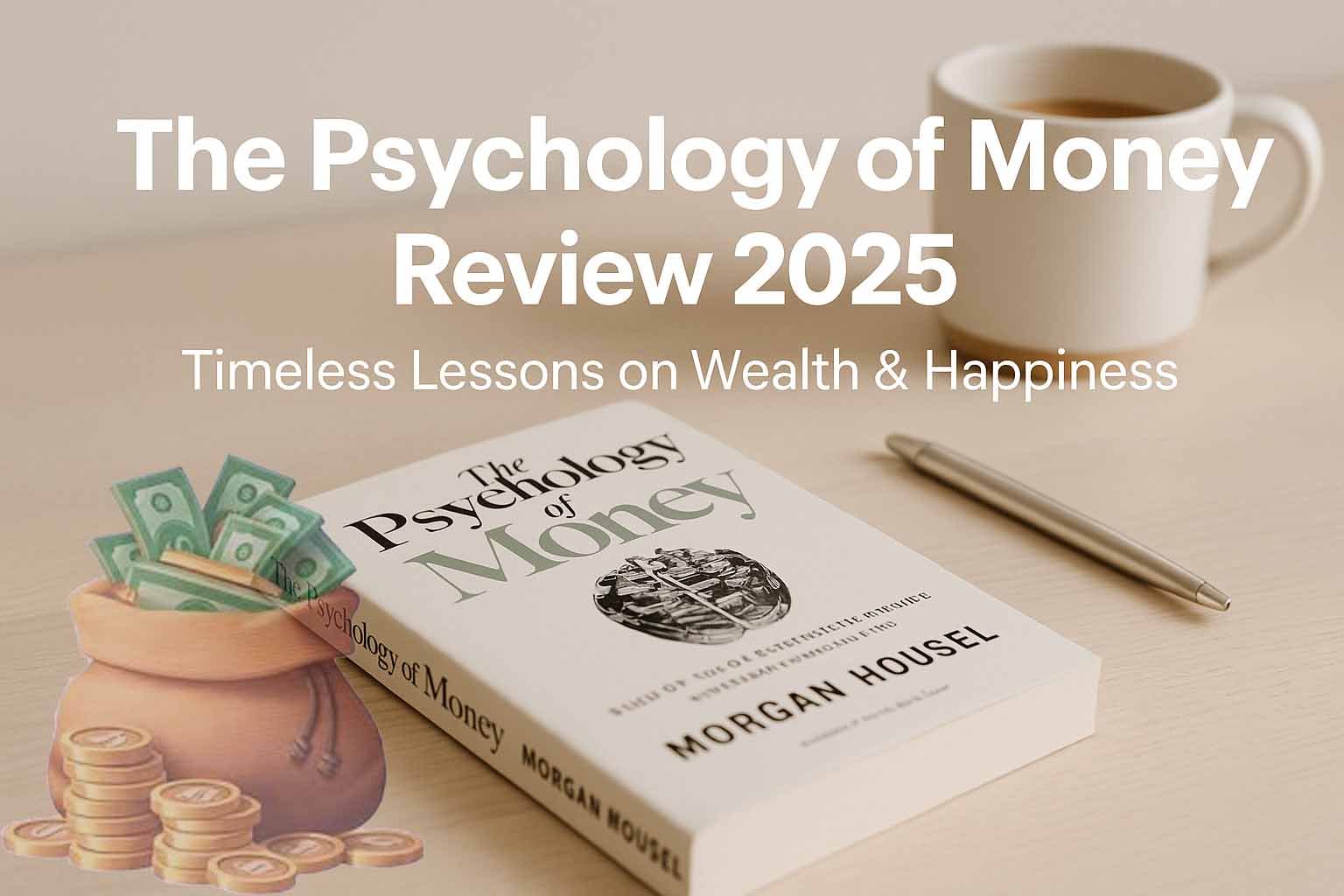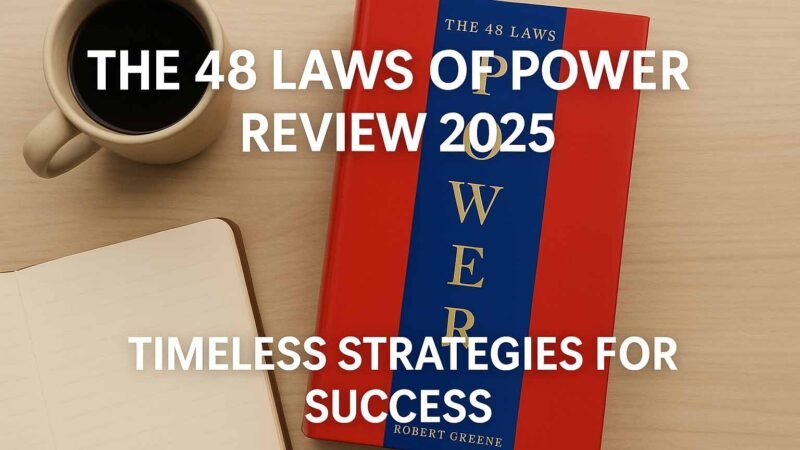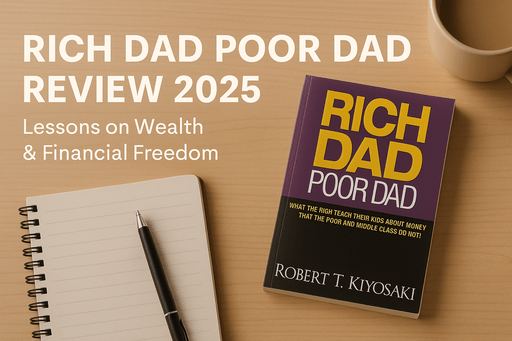The Psychology of Money Review 2025 – Lessons on Wealth

Money isn’t just numbers — it’s emotion, behavior, and perception. The Psychology of Money by Morgan Housel explores how our mindset affects financial success more than any strategy or spreadsheet. It remains one of the best personal finance books of 2025, inspiring readers to develop a strong wealth mindset and habits that lead to long-term stability and happiness. This Psychology of Money review uncovers key takeaways and why the book still dominates the finance category.
About the Book
Published in 2020, The Psychology of Money quickly became a global bestseller and a must-read behavioral finance book. Unlike traditional finance guides, it focuses on how people think about money, not just how to make it.
This Morgan Housel book summary reveals that the secret to wealth lies in understanding wealth and happiness, not financial complexity. Housel, a former columnist at The Wall Street Journal, shares relatable stories proving that emotional intelligence and patience are the real drivers of success.
Core Ideas and Takeaways
Here are the key takeaways from The Psychology of Money that help shape a calm, confident long-term investing mindset:
- Financial success is behavioral, not analytical.
Smart people often make bad financial decisions because emotions override logic. - Luck and risk play bigger roles than we think.
Never compare your journey to others — circumstances differ widely. - Save money even when you don’t have a specific goal.
Flexibility is the ultimate financial freedom. - Compounding works best with time, not timing.
Patience beats prediction — start early, stay consistent. - Wealth is what you don’t see.
Flashy cars and luxury lifestyles often hide debt, not wealth.
Why Readers Love This Book
Readers are drawn to Housel’s simple storytelling and deep insights. Many praise the The Psychology of Money quotes that summarize complex finance lessons in relatable ways.
Why it works:
- Real-world examples, not theory
- Short, engaging chapters
- Balanced mix of psychology and finance
- Universal appeal across all age groups
Who Should Read It
This book is for anyone learning how to think about money and build lasting wealth through emotional control and patience.
Ideal for:
- New investors exploring money behavior
- Professionals improving saving discipline
- Students developing financial awareness early
- Entrepreneurs balancing ambition with risk
Final Verdict :
⭐ Rating: 4.7 / 5
The Psychology of Money explained why behavior often determines wealth more than knowledge. It connects investing behavior psychology with emotional awareness, helping readers think long-term instead of chasing short-term gains.
In a world obsessed with numbers, Housel reminds us that true wealth lies in patience, humility, and control. If you want to improve your relationship with money, this book is a must-read.
Related Reads
If you enjoyed this book, check out other powerful behavioral finance books:
- Rich Dad Poor Dad by Robert Kiyosaki
- Your Money or Your Life by Vicki Robin
- Think and Grow Rich by Napoleon Hill



